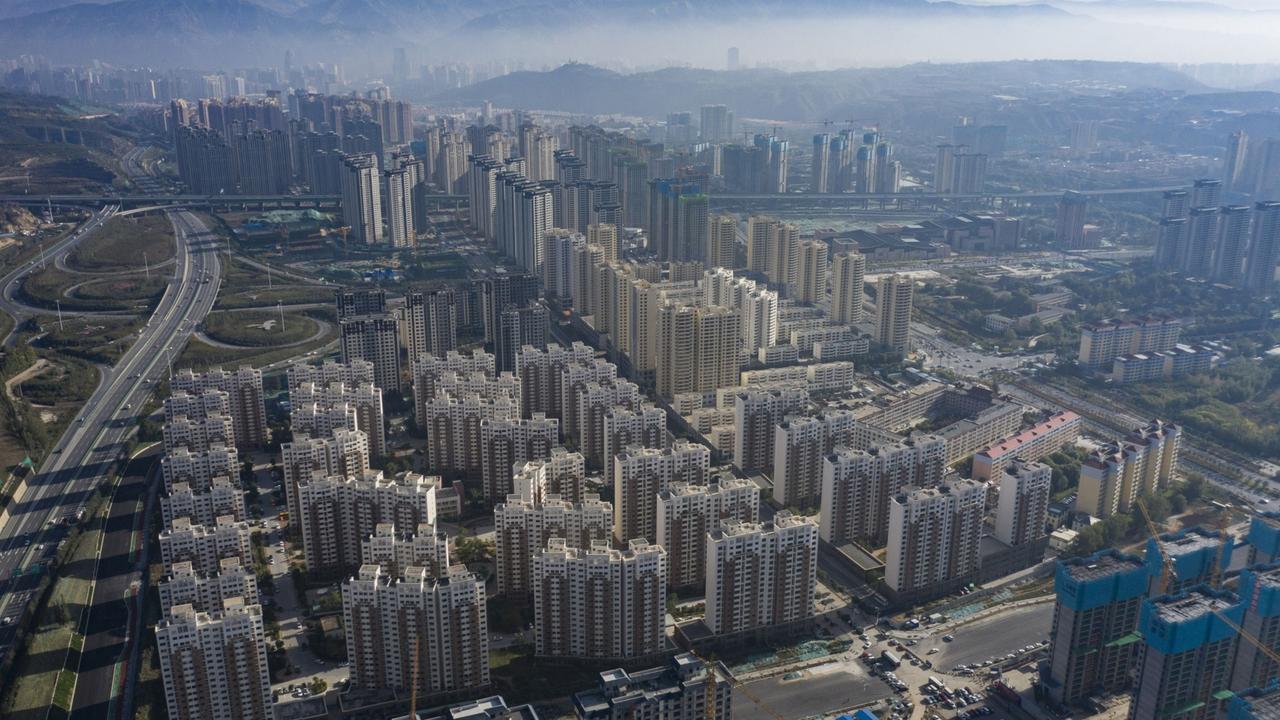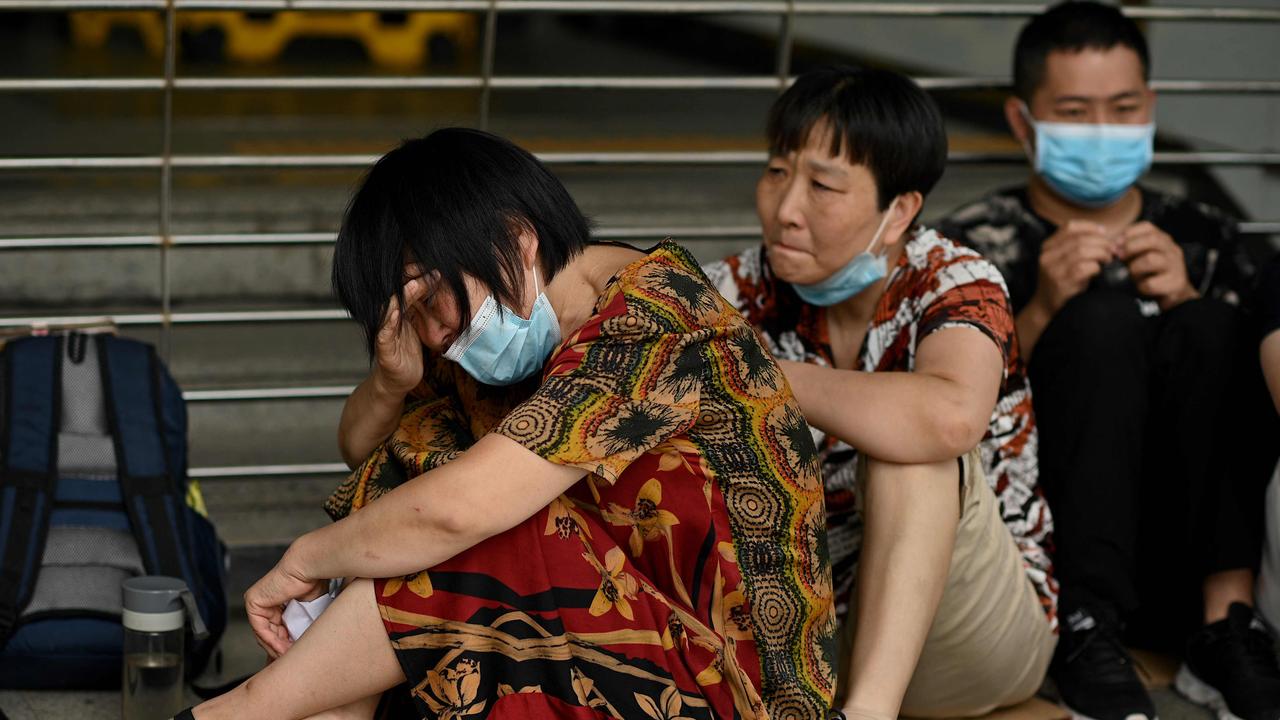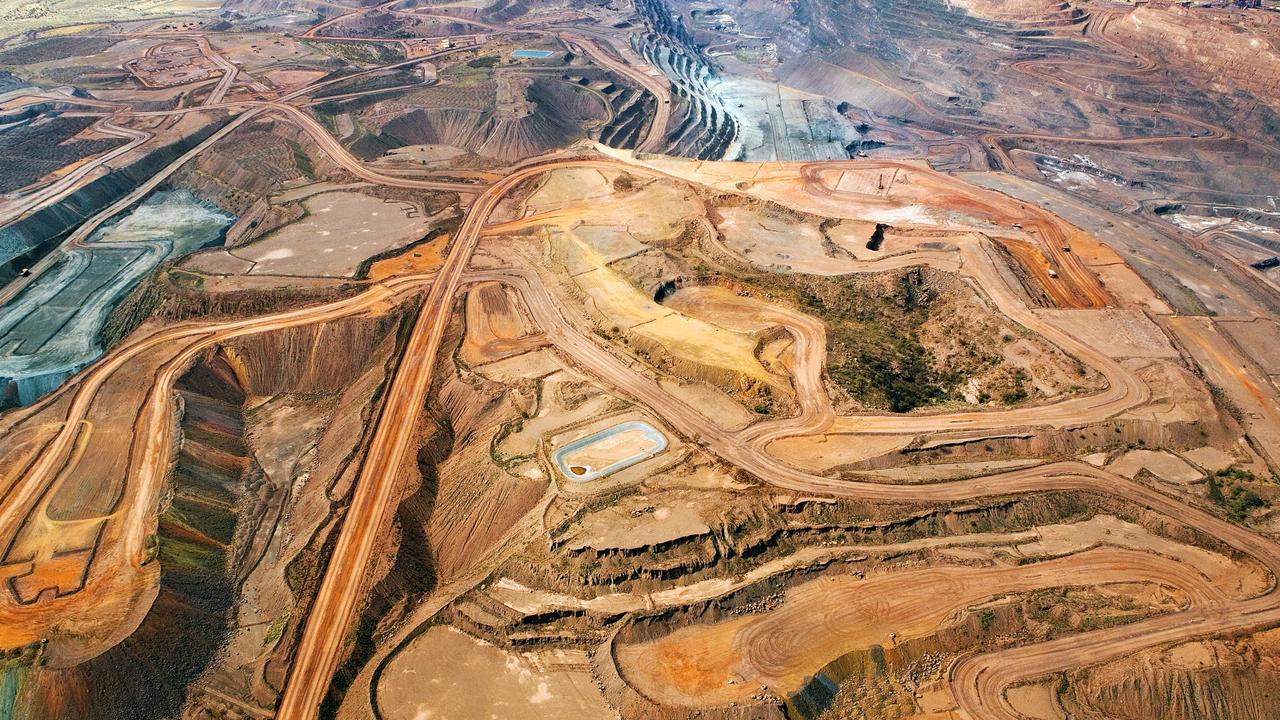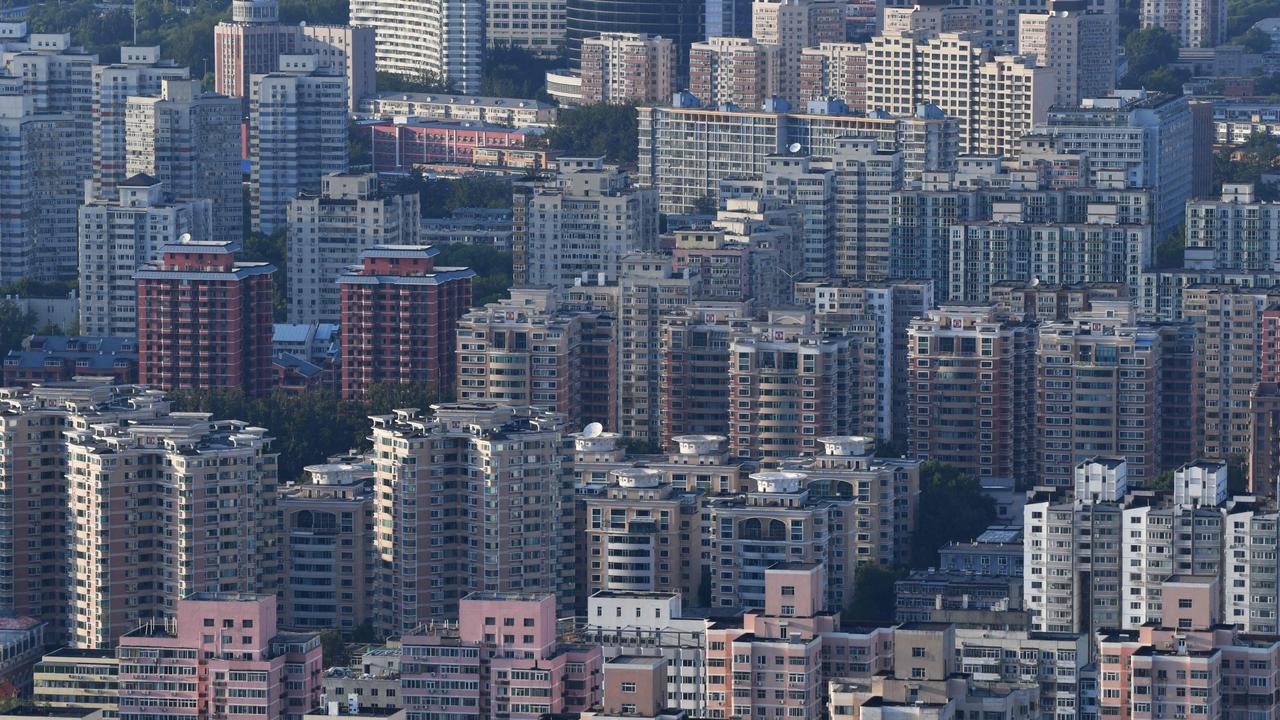China Evergrande’s collapse, iron ore price drop could hurt Australia’s economy
With one of China’s biggest property developers on the brink of collapse, its crash could have huge consequences for Australia.
One of China’s biggest property developers is on the brink of bankruptcy as it buckles under a staggering $A432 billion in debt and its collapse – which is seen as inevitable by some experts — will also hurt Australia’s economy.
China Evergrande has trillions of assets on its books, including a Fairlyland theme park, electric car company and even a professional football team, with the company contributing 2 per cent to the country’s entire economy.
While it has been holding off its demise by selling off assets, it missed yet another critical deadline last week and experts argue that the strategy won’t help it stay afloat long term.
A bond interest payment of $US47.5 million ($A66 million) came due – a figure which should have been small change for the second-largest real estate company in China, which boasts of “1300 projects in more than 280 cities”.

Robin Usson, credit analyst, at the international business of Federated Hermes, has predicted the company will ultimately file for bankruptcy in the coming weeks and is was unlikely the Chinese government would step in to save the ailing property developer.
He said the Chinese government would likely allow Evergrande to fail in the manner of a “controlled explosion”.
“China’s leadership values order above all else, and we believe it is working behind the scenes to limit the social and economic domino effect of the company’s demise,” he added
“We expect to see some companies asked to take over uncompleted Evergrande projects, while more banks will be instructed to extend loans to companies hit by the contagion.”
However, this contagion is also predicted to hit Aussie shores.

Iron ore
Australia’s export darling, iron ore is set to take a hit as Evergrande’s collapse smashes the broader Chinese property market.
China is the world’s biggest importer of iron ore accounting for 70 per cent of global demand, with 60 per cent coming from Australia. But property development could be curbed as the Evergrande collapse bites.
Professor of finance, Robert Powell from Edith Cowan University, said investors and lenders will be more cautious, potentially resulting in a credit crunch.
“This could severely dampen property development, and thereby demand for construction materials including steel, made using mostly imported iron ore,” he said in The Conversation.
“This trade has made iron ore Australia’s most valuable export commodity, worth an estimated$A149 billion in the 2020-2021 financial year. About 75 per cent went to China. Any drop in Chinese demand will therefore affect the Australian economy.”

Iron ore’s price has plummeted dramatically in the last few months, even dipping below the $US100 mark at one point, as China looks to rein in steel production to meet emission targets.
“Further falls in demand and thus prices will affect the Australian businesses and 45,600 jobs employed directly by the industry, as well as the thousands of jobs sustained though their wages, and government revenues from mining-related royalties and taxes,” Prof Powell added.
Two Australian miners have already suspended operations on the back of plunging iron ore prices.
The Ridges mine in East Kimberley was placed into “care and maintenance” with 200 jobs expected to be lost and $3.5 million a month in revenue for local businesses.
China’s weakening economy
Despite a bitter trade dispute impacting everything from wine to coal, China is still Australia’s biggest export market.
The Evergrande collapse could cause ripples across China’s economy, cutting demand from China for other services and goods, Prof Powell said.
“The effect of China buying less from Australia has been a matter of considerable debate. Some have argued Australia can compensate by diversifying into other markets,” he said.
“But such things take time. Economists Rod Tyers and Yixiao Zhou, who have simulated the effects of Australia-China trade being shut down, have argued short-term effects could be severe.”
China’s is the world second biggest economy and its property sector makes up 25 per cent of gross domestic product so the impact could be huge.

The economists argue that the loss of Chinese exports from Australia would force finance to be spent in other parts of the world.
It could mean Australia’s economy take a hit of 6 per cent, while real disposable income per capita would take a more shocking impact with a drop of 14 per cent.
Another Lehman Brother’s?
There has been wild speculation that the Evergrande collapse could cause a global financial crisis of the likes seen with the Lehman Brother’s – a reference to the financial giant that went bankrupt in 2008 causing the GFC.
More Coverage
However, most of Evergrande’s debt is localised in China, but there is always a risk of investors and banks in other markets getting spooked, leading to a global credit crunch, Prof Powell noted.
“Australian share markets have already fallen off their highs over the past few weeks, certainly in part over concerns about China’s economy,” he warned.
“The mining sector has experienced the real carnage, but there are indicators of general unease in falls across all sectors.”





